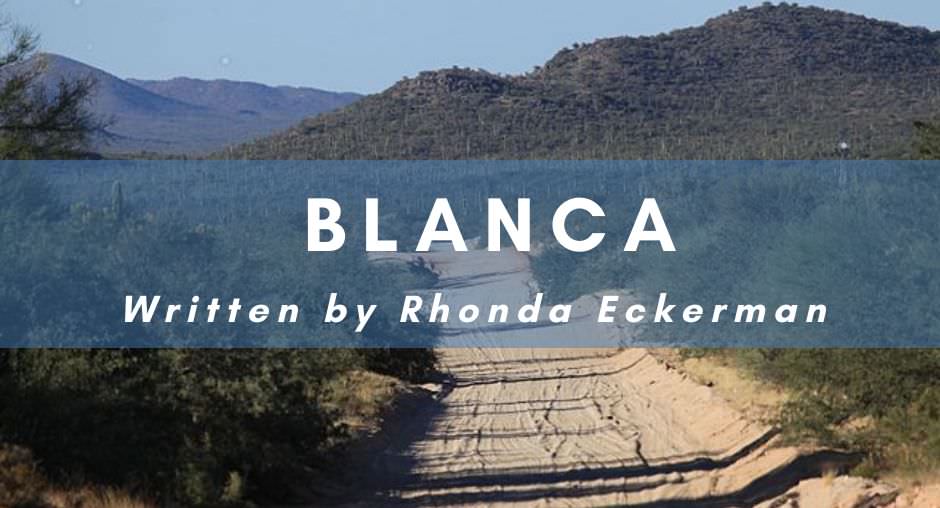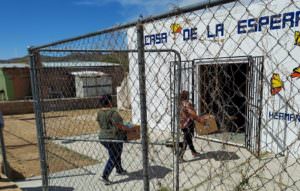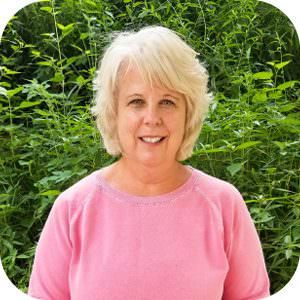Blanca

Editor’s Note: Rhonda Eckerman, a Lay Missioner serving on the US-Mexico Border, reflects on her time helping at Casa De La Esperanza and overcoming the language “barrier” with her new friend, Blanca.
One Saturday, my fellow Franciscan, Brother David, and I went to Sasabe, Mexico approximately 3 ½ hours by car from my home. Sasabe is a port town with a population of approximately 2,500 people. The port of entry is usually quiet and has the honor of being the least trafficked crossing in Arizona. But recently, Customs and Border Patrol (CBP) began to expel apprehended migrants into the Sasabe port. The number of migrants would range from 10-30 per day and most are in need of food, water, clothes, and shelter. I went there to help out at the newly established migrant hospitality center.
The center, Casa De La Esperanza (House of Hope), is a small two-room building with a dining room at the front and a kitchen in the back. When we arrived, there were already 11 guests sitting down at the dining room tables waiting for lunch. These migrants were mostly from the local area and were apprehended by CBP in Arizona and expelled earlier that day at the Sasabe port of entry. They were tired and hungry.
I immediately went into the back to see if I could help in the kitchen. I found the cook, Blanca, and three helpers chopping up potatoes and onions. As I settled in and started chopping potatoes, I noticed that the other helpers had left, and I was the only one in the kitchen with the cook. . . the Spanish speaking cook. It did not take long for her to realize that of all the other helpers she could have ended up with, she did not fare well! I understood very little Spanish, and my cooking skills were greatly lacking. How was this even going to work?
But I did not have time to dwell. The first time I nicked my finger on the kitchen knife, I hid the minor injury so as not to interrupt the flow in the kitchen. The SECOND time I cut my finger, Blanca had to stop everything and nurse my minor wound. For a moment, I thought she might want to go out onto the streets looking for other volunteers.
Despite these limitations, Blanca and I got into a rhythm – she would begin to do something, and then she would hand it over to me. Together, we made julienne potatoes, homemade refried beans, and homemade salsa with warm tortillas; all this without knowing each other’s language. By the end of the day, we fed 15 guests and five volunteers. With my limited Spanish skills, I learned she was a single parent with one son, and she was cooking and cleaning every day at the migrant center. And she was tired.
I still smile when I think about Blanca talking to me in Spanish the entire time we were preparing this meal. There was laughter and love in the kitchen that day, and I am so grateful I got to spend the day with her. I hugged her when I left. I didn’t really want to leave. As we said our goodbyes, she talked to me in her beautiful language, and I was imagining that she was saying to me, “come back anytime.”
I think that was the first time I realized there is no need to be afraid of my lack of Spanish, as there is no such thing as a language “barrier” if you are willing to find other ways to communicate.
Tagged in:


